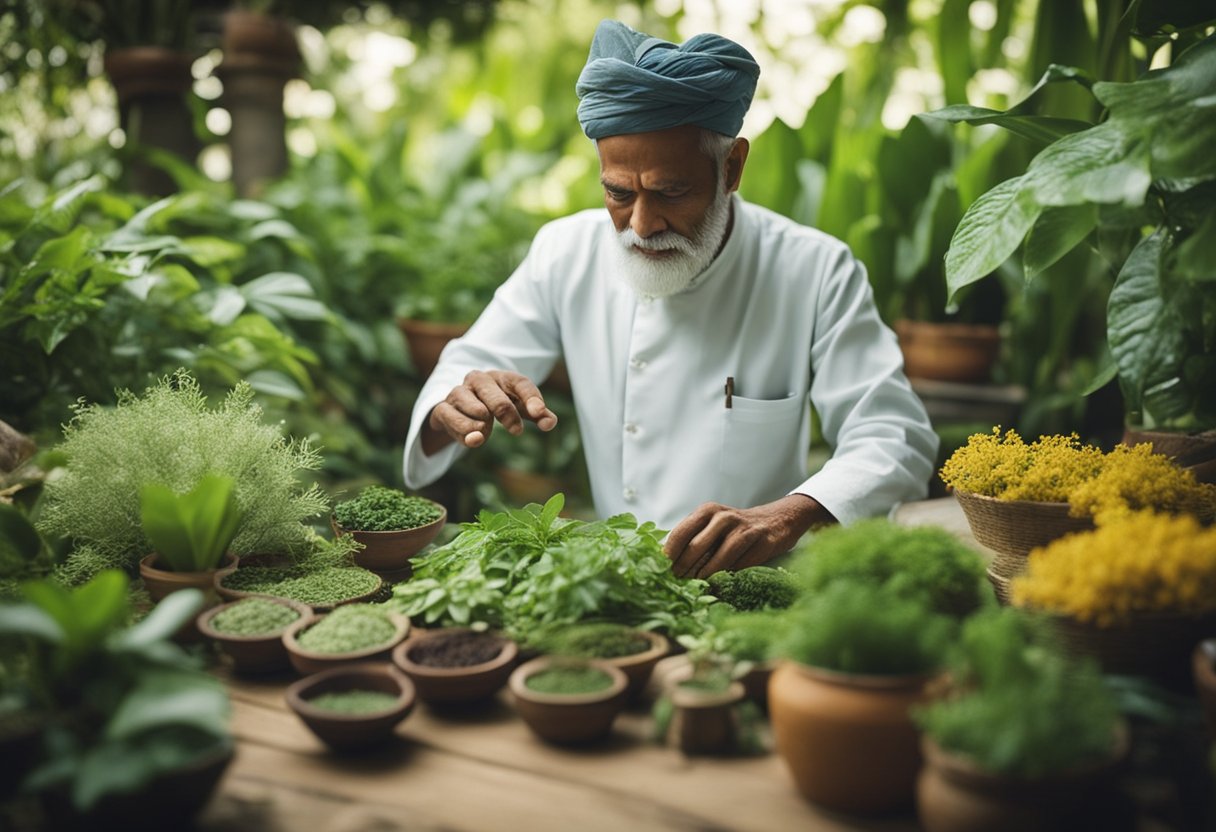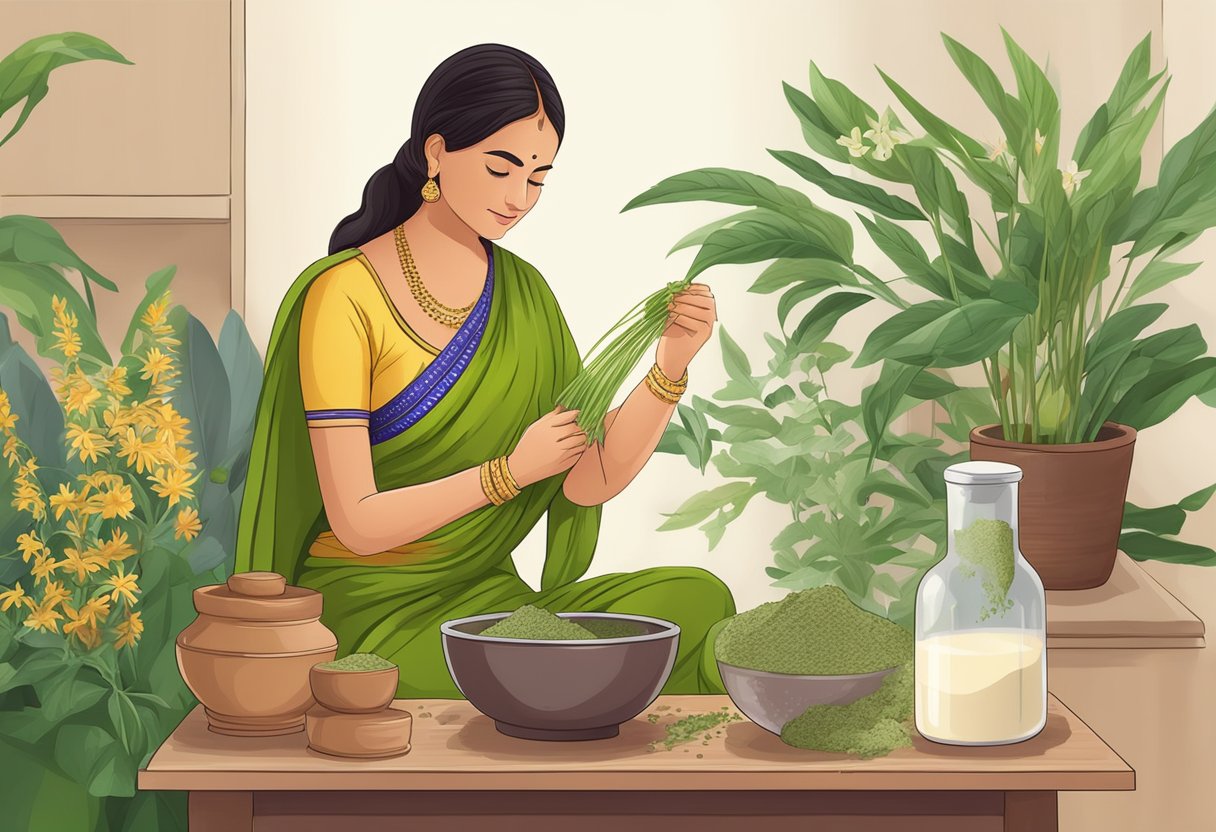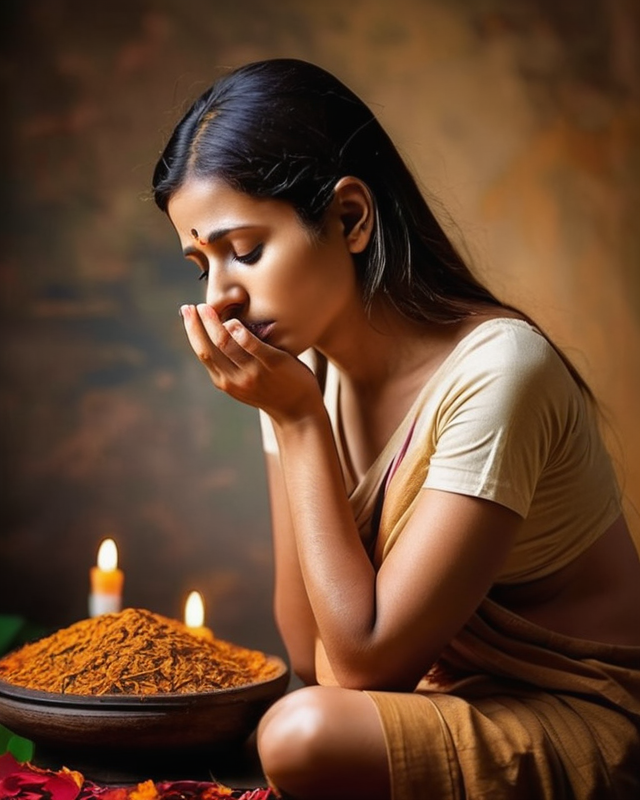Ayurvedic Treatment for Lung Cancer: An Overview
Ayurveda, the ancient Indian medical system, has been gaining popularity as an alternative treatment for various health conditions, including cancer. Lung cancer is one of the most common types of cancer and is responsible for the highest number of cancer-related deaths worldwide. Ayurvedic treatment for lung cancer focuses on using natural herbs, dietary and lifestyle changes, and yoga or meditation to improve the quality of life of cancer patients.

According to Ayurveda, lung cancer is caused by an imbalance of the three doshas – Vata, Pitta, and Kapha. The imbalance can be due to various factors, including poor diet, lifestyle choices, and environmental toxins. Ayurvedic treatment aims to restore the balance of the doshas and boost the immune system to fight cancer cells. The treatment also focuses on reducing the side effects of conventional cancer treatments, such as chemotherapy and radiation therapy, and improving the overall well-being of the patient.
Ayurvedic treatment for lung cancer includes various natural herbs, such as turmeric, ginger, and ashwagandha, which have anti-cancer properties. These herbs are used in different formulations, such as powders, capsules, and teas, and are believed to help shrink tumors and prevent cancer cells from spreading. Yoga and meditation are also an essential part of Ayurvedic treatment as they help reduce stress and anxiety, which can worsen cancer symptoms. Overall, Ayurvedic treatment for lung cancer aims to provide a holistic approach to cancer care and improve the quality of life of cancer patients.
Understanding Ayurveda

Principles of Ayurvedic Medicine
Ayurveda is an ancient Indian system of medicine that has been practiced for more than 5000 years. According to Ayurveda, the human body is composed of three doshas or energies, namely Vata, Pitta, and Kapha. These doshas are responsible for maintaining the balance and harmony of the body. Any imbalance in these doshas can lead to disease and illness.
Ayurveda believes that the root cause of any disease is the imbalance of these doshas. Therefore, Ayurvedic treatment focuses on restoring the balance of these doshas through natural remedies, such as herbs, diet, and lifestyle changes. Ayurveda also emphasizes the importance of a holistic approach to health, which includes physical, mental, and spiritual well-being.
Ayurveda and Cancer Care
Ayurveda has gained popularity in recent years as an alternative form of cancer treatment. Ayurvedic treatment for cancer focuses on strengthening the immune system and reducing the side effects of chemotherapy and radiation. Ayurvedic practitioners believe that cancer is caused by an imbalance in the doshas and that a holistic approach to treatment can help restore balance and promote healing.
Ayurvedic treatment for cancer includes a combination of herbal remedies, dietary changes, and lifestyle modifications. Some of the herbs used in Ayurvedic treatment for cancer include Ashwagandha, Turmeric, and Tulsi. Ayurvedic practitioners also recommend a diet that is rich in fruits, vegetables, and whole grains, and low in processed foods and sugar.
Ayurveda also emphasizes the importance of stress reduction and relaxation techniques, such as yoga and meditation, in cancer care. These techniques can help reduce stress and anxiety, improve sleep, and promote overall well-being.
Overall, Ayurveda offers a holistic approach to cancer care that focuses on restoring balance and promoting healing. While more research is needed to fully understand the effectiveness of Ayurvedic treatment for cancer, many cancer patients have reported benefits from this ancient form of medicine.
Ayurvedic Perspective on Lung Cancer

Ayurveda, a traditional Indian system of medicine, views cancer as a result of an imbalance in the body’s three doshas: Vata, Pitta, and Kapha. According to Ayurveda, lung cancer is primarily caused by an imbalance in the Kapha dosha.
Doshas and Lung Cancer
The Kapha dosha is responsible for maintaining the structure and lubrication of the body. When it becomes imbalanced, it can lead to the accumulation of mucus and phlegm in the lungs, which can increase the risk of lung cancer. Ayurveda recommends balancing the Kapha dosha through diet and lifestyle changes to reduce the risk of lung cancer.
Toxins and Lung Health
Ayurveda also recognizes the role of toxins in the development of lung cancer. Exposure to environmental toxins, such as air pollution and cigarette smoke, can increase the risk of lung cancer. Ayurvedic treatments for lung cancer focus on removing toxins from the body and strengthening the immune system.
In Ayurveda, lung cancer is treated using a combination of herbal remedies, dietary changes, and lifestyle modifications. These treatments aim to balance the doshas, remove toxins from the body, and strengthen the immune system. While Ayurvedic treatments may be helpful in managing the symptoms of lung cancer, it is important to consult with a healthcare professional before using any alternative therapies.
Ayurvedic Treatments for Lung Cancer

Ayurveda, an ancient Indian system of medicine, offers a holistic approach to treating lung cancer. Ayurvedic treatments for lung cancer are based on the principles of balancing the doshas (vata, pitta, and kapha), detoxifying the body, and boosting the immune system.
Herbal Remedies
Ayurvedic practitioners use a variety of herbs to treat lung cancer. Some of the commonly used herbs include:
- Ashwagandha: This herb is known for its anti-inflammatory and anti-cancer properties. It helps to reduce the size of tumors and prevent the spread of cancer cells.
- Tulsi: Also known as holy basil, this herb is a powerful antioxidant that helps to boost the immune system and protect the body from the harmful effects of free radicals.
- Turmeric: This spice has powerful anti-inflammatory and anti-cancer properties. It helps to reduce inflammation in the body and prevent the growth of cancer cells.
Dietary Recommendations
Ayurvedic practitioners recommend a diet that is rich in fresh fruits and vegetables, whole grains, and lean protein. Some of the foods that are recommended for lung cancer patients include:
- Green leafy vegetables: These are rich in antioxidants and help to boost the immune system.
- Citrus fruits: These are rich in vitamin C, which helps to boost the immune system and protect the body from the harmful effects of free radicals.
- Whole grains: These are rich in fiber and help to promote digestion and detoxification.
Panchakarma Therapy
Panchakarma is a detoxification therapy that is used in Ayurveda to remove toxins from the body and promote healing. It involves a series of treatments, including massage, herbal steam baths, and enemas. Panchakarma therapy helps to remove toxins from the body, boost the immune system, and promote healing.
In conclusion, Ayurvedic treatments for lung cancer offer a holistic approach to treating the disease. Herbal remedies, dietary recommendations, and Panchakarma therapy can help to reduce inflammation, boost the immune system, and promote healing. However, it is important to note that Ayurvedic treatments should be used in conjunction with conventional medical treatments, and patients should consult with their doctors before starting any new treatments.
Integrating Ayurveda with Conventional Treatment

Ayurveda is a complementary approach to conventional cancer treatment. It can be used in conjunction with chemotherapy, radiation therapy, and surgery to improve the patient’s overall wellbeing and quality of life. Integrating Ayurveda with conventional treatment can help alleviate side effects of chemotherapy and radiation therapy, boost immunity, and enhance the patient’s mental and emotional health.
Complementary Approaches
Ayurveda offers several complementary approaches to conventional cancer treatment. These approaches include herbal remedies, dietary modifications, lifestyle interventions, and rejuvenation therapies. Herbal remedies such as turmeric, ashwagandha, and guggulu have been found to have anti-cancer properties and can be used to complement chemotherapy and radiation therapy. Dietary modifications such as consuming a plant-based diet, avoiding processed foods, and reducing sugar intake can help boost immunity and reduce inflammation.
Lifestyle interventions such as yoga, meditation, and pranayama can help reduce stress and anxiety, improve sleep quality, and enhance the patient’s mental and emotional wellbeing. Rejuvenation therapies such as Panchakarma can help detoxify the body, improve digestion, and enhance overall vitality.
Patient Case Studies
Several patient case studies have shown the benefits of integrating Ayurveda with conventional cancer treatment. In a case study published in the Journal of Ayurveda and Integrative Medicine, a 45-year-old woman with stage IV lung cancer was treated with a combination of chemotherapy, radiation therapy, and Ayurvedic treatment. The Ayurvedic treatment included herbal remedies, dietary modifications, and lifestyle interventions such as yoga and meditation. The patient experienced a significant reduction in tumor size and improvement in overall wellbeing.
In another case study published in the International Journal of Ayurveda and Pharma Research, a 58-year-old man with stage IV lung cancer was treated with a combination of chemotherapy, radiation therapy, and Ayurvedic treatment. The Ayurvedic treatment included herbal remedies, dietary modifications, and rejuvenation therapies such as Panchakarma. The patient experienced a significant reduction in tumor size, improvement in overall wellbeing, and reduction in side effects of chemotherapy.
Integrating Ayurveda with conventional cancer treatment can provide a holistic approach to cancer care. It can help improve the patient’s overall wellbeing, reduce side effects of chemotherapy and radiation therapy, and enhance the patient’s mental and emotional health.
Research and Efficacy

Ayurvedic treatment for lung cancer has been gaining attention in recent years as a complementary therapy to conventional treatments. While there is limited clinical research on the efficacy of Ayurvedic treatments for lung cancer, some studies have shown promising results.
Clinical Studies
One study published on ResearchGate 1 reported a case study of a 62-year-old male patient with stage IV lung adenocarcinoma who received Ayurvedic treatment. The patient underwent Ayurvedic treatment for six months, which included herbal medicines, dietary changes, and lifestyle modifications. After six months, the patient’s tumor size had decreased, and his overall health had improved.
Another study published on PubMed Central 2 reviewed the potential of Ayurvedic medicine in cancer care and prevention. The article highlighted the need for further research into the mechanisms and safety of Ayurvedic herbs, as well as the efficacy of Ayurvedic protocols for cancer treatment.
Evidence-Based Review
A review published on ResearchGate 3 analyzed the use of Ayurveda for cancer therapy. The review found that Ayurvedic medicine may be beneficial in the prevention, palliation, treatment, and support of cancer in a variety of ways. Ayurvedic medicine can help raise living standards and can be used in conjunction with conventional treatments.
While more research is needed to fully understand the efficacy of Ayurvedic treatments for lung cancer, these studies suggest that Ayurvedic medicine may be a promising complementary therapy for cancer patients. It is important to note that Ayurvedic treatments should not be used as a substitute for conventional treatments, but rather as a complementary therapy alongside conventional treatments.
Frequently Asked Questions

What are the most effective Ayurvedic herbs for managing lung cancer symptoms?
Ayurveda emphasizes the use of herbs and natural remedies to manage the symptoms of lung cancer. Some of the most commonly used herbs include turmeric, ashwagandha, ginger, and holy basil. Turmeric, for example, contains curcumin, a powerful antioxidant that can help reduce inflammation and boost the immune system. Ashwagandha is known for its adaptogenic properties, which can help the body cope with stress and anxiety. Ginger and holy basil are both anti-inflammatory and can help alleviate nausea and vomiting associated with chemotherapy.
Can Ayurveda offer supportive care for patients undergoing chemotherapy for lung cancer?
Yes, Ayurveda can offer supportive care for patients undergoing chemotherapy for lung cancer. Ayurvedic therapies such as massage, yoga, and meditation can help reduce stress and anxiety, improve sleep quality, and boost the immune system. In addition, Ayurvedic dietary recommendations can help patients maintain their strength and energy levels during chemotherapy.
What dietary changes are recommended in Ayurveda for someone with lung cancer?
Ayurveda emphasizes the importance of a healthy diet in managing lung cancer. Patients are advised to eat a diet rich in fruits, vegetables, whole grains, and lean protein sources such as fish and chicken. They are also advised to avoid processed foods, sugar, and unhealthy fats. In addition, Ayurveda recommends the use of spices such as turmeric, cumin, and coriander, which have anti-inflammatory properties.
How does Ayurveda approach the overall treatment of cancer patients?
Ayurveda takes a holistic approach to the treatment of cancer patients, focusing on the whole person rather than just the disease. Treatment plans are tailored to the individual and may include a combination of herbal remedies, dietary changes, lifestyle modifications, and other therapies such as massage, yoga, and meditation. The goal is to improve the patient’s overall health and well-being, while also addressing the specific symptoms and side effects of lung cancer.
Are there any Ayurvedic detoxification processes beneficial for lung cancer patients?
Ayurveda places great emphasis on the importance of detoxification in maintaining good health. There are several Ayurvedic detoxification processes that may be beneficial for lung cancer patients, including Panchakarma, a cleansing and rejuvenating therapy that involves massage, herbal steam baths, and other techniques. However, it is important to consult with a qualified Ayurvedic practitioner before undergoing any detoxification process.
What lifestyle modifications does Ayurveda suggest to complement conventional lung cancer treatment?
Ayurveda recommends several lifestyle modifications to complement conventional lung cancer treatment. Patients are advised to get plenty of rest, engage in regular exercise, and manage stress through techniques such as yoga and meditation. In addition, Ayurveda emphasizes the importance of maintaining a positive outlook and cultivating a sense of purpose and meaning in life.




